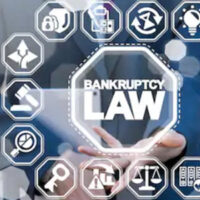What You Should Know About Chapter 7 Bankruptcy For Corporations And LLCs

Bankruptcy cases for corporations and LLCs are different from bankruptcy cases for other types of businesses, especially for sole proprietorships and for many partnerships. First, it is important to know that both corporations and LLCs can file for bankruptcy. The type of bankruptcy that the business files for will determine whether it can continue operating or whether it must close. Generally speaking, Chapter 7 business bankruptcies require the corporation or LLC to close, while a Chapter 11 bankruptcy (including a Subchapter V bankruptcy) can allow a corporation or an LLC to remain open while reorganizing debts and catching up with money owed to creditors. There are additional considerations for corporation and LLC Chapter 7 bankruptcy cases that our West Palm Beach bankruptcy lawyers want to discuss in more detail.
Corporations and LLCs File for Chapter 7 Bankruptcy as Separate Entities
Both corporations and LLCs, like sole proprietorships or individuals, can file for Chapter 7 bankruptcy. However, since corporations and LLCs are distinct entities and are separate from the business owners, the business owners themselves will not be filing for Chapter 7 bankruptcy. Instead, the entity itself will be filing for bankruptcy. Once a corporation or an LLC files for Chapter 7 bankruptcy, the bankruptcy trustee will liquidate the business’s assets in order to repay creditors. However, unlike in individual bankruptcy cases, corporations and LLCs do not receive a bankruptcy debt discharge.
Since the business will be closed, creditors cannot come after the business. At the same time, the debts remain, which can allow creditors to try to recover money owed from individual business owners in certain circumstances. Generally speaking, both corporations and LLCs provide strong liability protection for owners, but there are situations in which individual owners can be liable for business debts.
Personal Liability May Apply in Some Chapter 7 Bankruptcy Cases Involving Corporations or LLCs
When can individual business owners be personally responsible for the debts of corporations or LLCs that have filed for Chapter 7 bankruptcy? In general, the following are the types of situations in which there may be personal liability:
- Business owners have made personal guarantees for business loans or debts, either by cosigning a loan individually or offering a personal asset as collateral;
- Fraud in general, usually meaning that there was an attempt to prevent a creditor from receiving money owed; and
- Situations where a creditor can prove an “alter ego claim,” meaning that the corporation or LLC was an alter ego of one of the members or shareholders.
While there are situations in which individuals may be personally liable for business debts in a corporation or LLC Chapter 7 bankruptcy case, it is important to keep in mind that this is not the norm. In most Chapter 7 bankruptcy cases involving a corporation or an LLC, individual owners — meaning a member or a shareholder — will not be held personally accountable for any of the business’s remaining liabilities once the business closes.
Contact a Business Bankruptcy Lawyer in West Palm Beach
If your business is considering Chapter 7 bankruptcy, it is essential to seek advice from an experienced West Palm Beach bankruptcy attorney who can guide you through this complex process. Do not hesitate to get in touch with one of the lawyers at Kelley Kaplan & Eller to find out more about business bankruptcy options and how to get started on a business bankruptcy petition.
Sources:
law.cornell.edu/uscode/text/11
govinfo.gov/content/pkg/USCOURTS-wvnb-1_16-bk-00816/pdf/USCOURTS-wvnb-1_16-bk-00816-0.pdf



